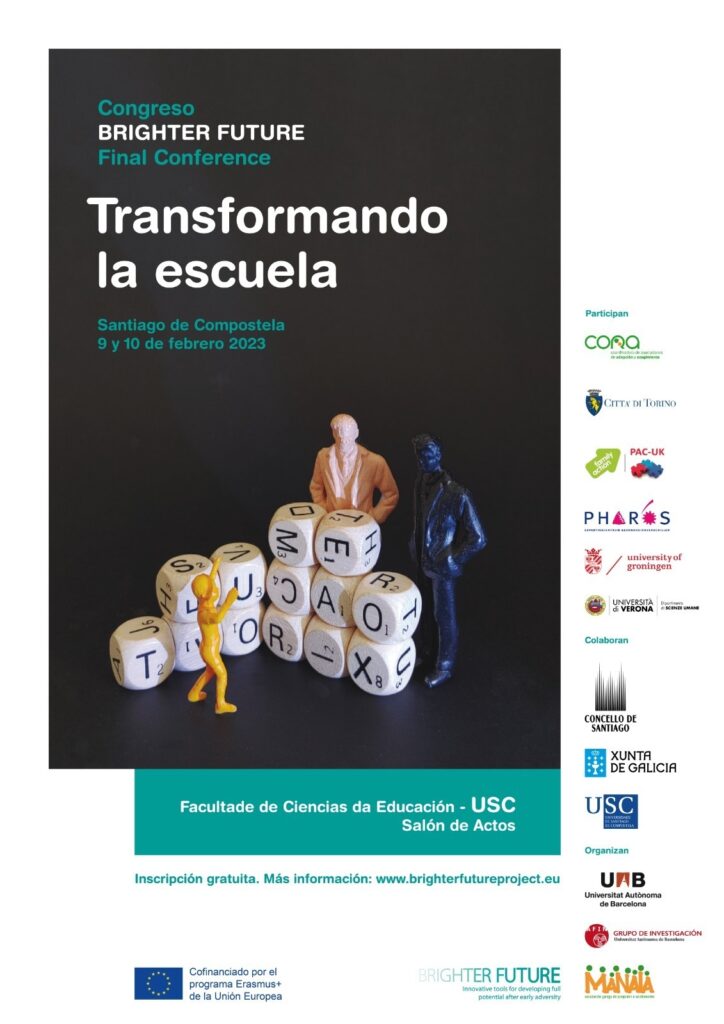Free registration is open

On 9 and 10 February, the final conference of the BRIGHTER FUTURE project will be held at the Faculty of Education Sciences of the University of Santiago de Compostela, with the aim of presenting its results and discussing them with international researchers, professionals, families and people who have been in alternative care at some point in their childhood.
- Simultaneous translation
Simultaneous translation (English-Spanish-English) will be available in all sessions. To make use of this service, you must download the Zoom app on your mobile phone and bring headphones.
- Workshops
On the afternoon of Friday, 10 February, three free simultaneous workshops will take place with a duration of 90 minutes and a maximum of 20 participants per workshop. Registration for both the conference and the workshops is free of charge, but prior registration is required.
Workshops
- Not without us: Promoting the participation of children and adolescents
By Aida Urrea-Monclús (University of Lleida)
Language: Spanish
The importance of giving children and adolescents a voice and taking them into account is increasingly recognised. However, this participation is sometimes limited by the lack of strategies on the part of adults to involve them. In this workshop we will learn about experiences in which children and adolescents are active agents in their own lives and we will put some participatory strategies into practice. - The history of children in school
By Federica de Cordova and Chiara Sità (University of Verona, Italy)
Language: Spanish and English
How can teachers and school staff work to create a welcoming environment for children who have experienced early adversity? During this session, we will explore and discuss strategies and tools based on a case study that will allow us to understand how the educational context can promote care for the child’s personal history, foster peer relationships and build meaningful relationships with caregivers. - Intersectionality and educational equity
By Gaby Martinez (University of Groningen, The Netherlands)
Language: Spanish
In order to guarantee equal opportunities, it is important to bear in mind that the identity of children and adolescents (like that of adults) is not defined by a single characteristic. Elements such as class, ethnicity, race, sexual orientation, gender identity or (dis)ability combine. This workshop reflects on the ways in which these elements are intersected by power dynamics that affect their experiences in intertwined ways, rather than as separate systems of oppression, with the aim of developing inclusive educational practices from an intersectional perspective.